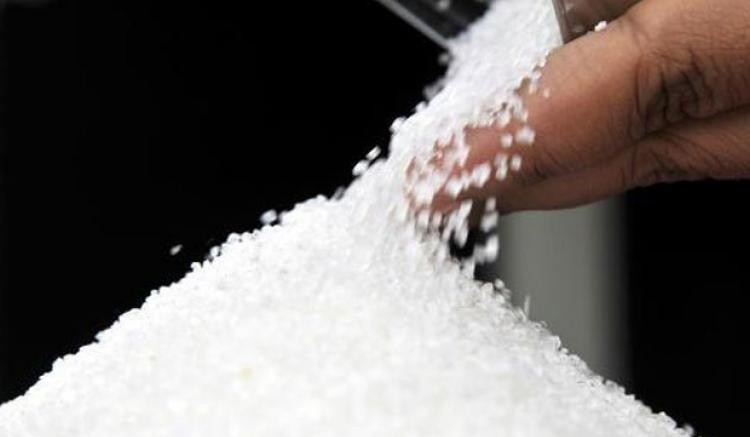BY SEGUN AJAYI-KADIR
In recent weeks, some organisations have called upon the Nigerian Federal government to increase the excise tax on sugar-sweetened beverages (SSBs) under the guise of combating diabetes and obesity. While we acknowledge the importance of addressing these health concerns, it is important to be wary of the oversimplification of the issue and the misguided demonisation of SSBs.
Firstly, it is crucial to consider Nigeria’s sugar consumption in relation to the World Health Organization’s (WHO) recommended daily intake limit. According to the Sugar Annual Report of the United States Department of Agriculture (May 19, 2022), the per capita sugar consumption in Nigeria in 2021 was around 8 kg, which is much lower than the global average of roughly 21.4 kg per person and below 9.1 kg per annum recommended by the WHO. In addition, the diabetes prevalence in Nigeria in 2021, measured as the percentage of the population ages 20 to 79, is equivalent to 3.6% and is relatively low compared to the average global rate of 9.8%.
While excess sugar consumption should be addressed, it is noteworthy that the majority of Nigerians fall within the recommended limits. Imposing increased taxes on SSBs based on this fatuous argument disregards the larger context of overall sugar consumption patterns.
Advertisement
Promoting a false narrative that sugar-sweetened beverages are the sole cause of diabetes and obesity is not only misleading but also detrimental to the national economy and the reputation of the producers. Such unfounded claims can create unwarranted panic among the public, leading to a decline in consumer confidence, which can have far-reaching consequences for the beverage industry. It is essential to base decisions on scientific evidence and not succumb to alarmist rhetoric that lacks a comprehensive understanding of the issue at hand.
The evidence available to us does not support the notion that taxing soft drinks has successfully reduced obesity, or diabetes in countries where such measures have been implemented. These health issues are multifaceted and require collaboration between various stakeholders, including governments, industry, healthcare, and civil society. It cannot be adequately addressed through isolated approaches such as excise taxes on soft drinks.
The primary cause of obesity and overweight is an imbalance between calories consumed and calories expended over time. The World Health Organization (WHO) acknowledges that the high prevalence of obesity is likely influenced by a combination of factors, including genetic traits, environmental factors, and behavioural aspects that may have genetic and environmental influences.
Advertisement
International experience has failed to demonstrate that reduced consumption of soft drinks through taxation leads to weight loss. Weight loss requires a reduction in overall calorie intake and increased physical activity. Despite implementing soft drink taxes, countries such as Mexico, Finland, Chile, the United Kingdom, France, and Ireland continue to grapple with rising obesity rates and have not provided evidence of significant public health benefits:
- Mexico introduced a sugar tax in 2014 to curb high soft drink consumption and combat their alarming obesity rates. However, obesity rates in Mexico have continued to rise.
- The United Kingdom implemented a sugar tax in 2018, but there is no evidence of improving obesity rates. Obesity rates in the UK are the highest in Europe, with projections indicating further increases in overweight rates in the coming years. It is worth noting that beverages contribute only a small percentage to overall sugar intake, while confectionery accounts for a much larger portion.
- Reports from the International Monetary Fund (IMF) and the Organisation for Economic Co-operation and Development (OECD) on taxation in Chile have highlighted that the impact of the soft drink tax on reducing sugary drink consumption does not necessarily lead to an overall decrease in sugar consumption. Studies have indicated that consumers tend to substitute the source of their sugar intake rather than reduce it significantly.
These examples demonstrate that simply implementing taxes on soft drinks does not effectively address the complex issue of obesity and overweight. A comprehensive approach involving education, behavioural changes, and broader dietary reforms is necessary to tackle these challenges successfully.
Nigeria’s previous implementation of a sugar tax in 2021 already had significant repercussions, as the industry faced an 8% to 10% revenue decline, and the Food and Beverage sub-sector experienced negative GDP growth. These distressing indicators foreshadow a bleak future if the proposed tax is enforced, with dire consequences including mass layoffs, factory shutdowns, and an exacerbation of the already rampant unemployment crisis, predicted to hit 41% in 2023.
The collateral damage of this tax won’t be limited to the manufacturing sector alone. The burden will disproportionately fall on lower-income consumers who rely on SSBs as a staple in their diet due to limited access to fresh produce amidst soaring inflation rates. The proposed tax and the inflation crisis will further erode their purchasing power, leading to higher prices for essential goods and services. The vicious cycle of deprivation and scarcity will only worsen, pushing Nigeria deeper into food shortage nightmares.
Advertisement
As seen in Denmark’s case, the increase in the tax on SSBs can lead to inflation, which will affect the purchasing power of consumers and result in higher prices for other goods and services. This is counter-productive because the country is currently facing one of its worst inflation crises, and a further increase in everyday commodities would only cause more.
Moreover, the government should consider the potential decline in tax revenue resulting from increased taxes. Higher prices may lead to reduced consumption, which in turn could lead to a decrease in sales volume. As a result, the projected revenue increase from the tax hike may not materialize, adversely affecting the government’s ability to fund essential public services and initiatives.
Rather than resorting to punitive taxation, a more holistic approach should be adopted to address public health concerns. Educating the public about balanced diets, promoting physical activity, and encouraging healthier lifestyle choices should be at the forefront of any strategy. Collaborative efforts between government agencies, NGOs, and the private sector can contribute to creating awareness and driving positive behavioural changes.
While there has been a slight decline in SSB purchases following the implementation of sugar taxes in other countries, there is no concrete evidence to suggest a significant improvement in citizens’ health and nutrition. These taxes often fail to deliver their intended results, and Nigeria should instead focus on proven strategies that yield better outcomes for the population.
Advertisement
While it is important to address public health challenges, a knee-jerk reaction to increasing taxes on sugar-sweetened beverages is not an effective or equitable solution. Nigeria’s sugar consumption should be examined comprehensively, taking into account overall dietary patterns. Unsubstantiated claims and punitive taxation can have far-reaching negative consequences for businesses, consumers, and the national economy.
Rather than focusing solely on taxation, we should advocate for a multi-faceted approach that includes education, lifestyle changes, and agricultural interventions. By working together, we can achieve a healthier nation while also safeguarding economic growth, consumer choice, and the national reputation of Nigeria.
Advertisement
Segun Ajayi-Kadir, mni, is the director-general of the Manufacturers Association of Nigeria
Advertisement
Views expressed by contributors are strictly personal and not of TheCable.
Add a comment






